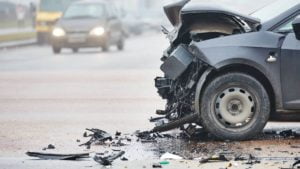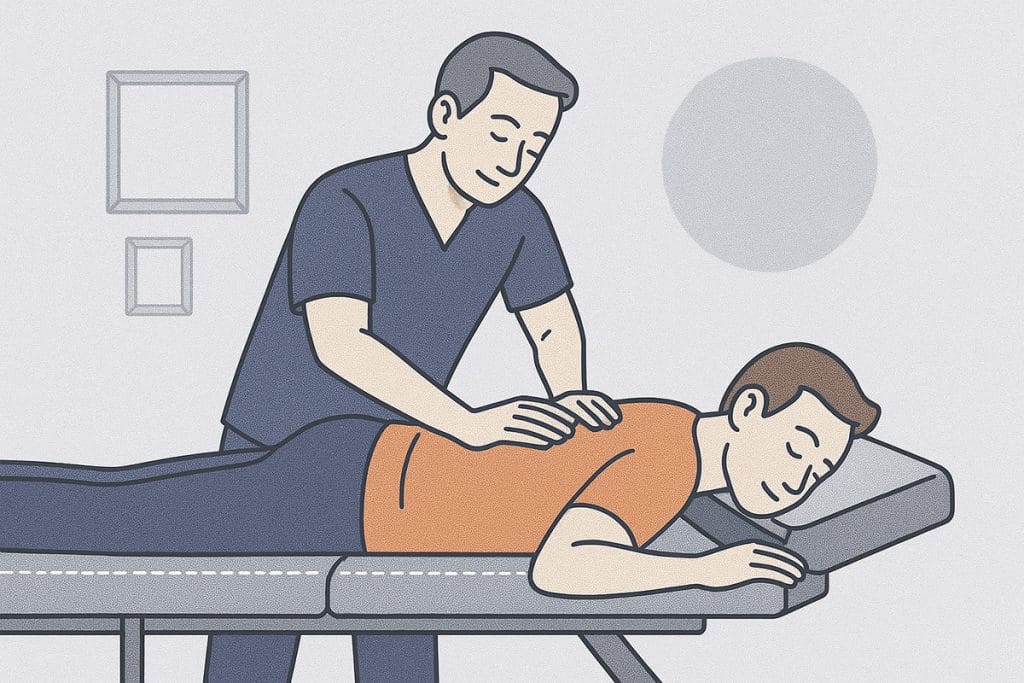The following was written by one of our patients who has benefited greatly from seeing multiple therapists at Backs in Action after her car accident. We thought others would like to hear her story in her own words to better understand how seeking care early and working with a collaborative team make the world of difference in the recovery process.
“As I sit here, nursing the injuries sustained from a recent car accident, I can’t help but reflect on the importance of seeking early multidisciplinary care. The impact of the accident not only left physical scars but also shook me mentally and emotionally. In the whirlwind of chaos that followed the collision, one decision stood out as crucial: seeking comprehensive care from a team of professionals who specialize in different aspects of rehabilitation.
Car accidents are traumatic events, often leaving victims with a myriad of physical and psychological injuries. From whiplash and back pain to anxiety and post-traumatic stress disorder (PTSD), the aftermath of such incidents can be overwhelming. However, I’ve come to realize that early intervention and a holistic approach to treatment can make all the difference in the recovery process. And helpfully, ICBC covers most, if not all, of the cost of your treatments for the first 12 weeks after your accident – and often for longer periods of time if you’re not feeling the way you were prior to your accident.
One of the first steps I took was to consult with a chiropractor. Their expertise in spinal alignment and musculoskeletal health played a pivotal role in addressing the immediate pain and discomfort caused by the accident. Through adjustments and therapeutic techniques, they helped alleviate tension and restore mobility, setting the foundation for further rehabilitation.
In conjunction with chiropractic care, physiotherapy became an integral part of my recovery journey. Guided by knowledgeable physiotherapists, I engaged in targeted exercises aimed at strengthening weakened muscles and improving range of motion. Their personalized approach not only expedited healing but also empowered me to take an active role in my recovery. The physiotherapist worked alongside my kinesiologist who worked on getting me stronger, fitter and feeling great. She taught me exercises that I could easily do at home so I was in less pain and feeling empowered to do the things I normally would have done with ease before my accident.
Understanding the interconnectedness of body and mind, I also sought support from a clinical counsellor. Processing the trauma of the accident and its aftermath was essential for my overall well-being. Through counseling sessions, I learned coping mechanisms, gained perspective, and gradually reclaimed a sense of control over my life.
Additionally, complementary therapies such as massage therapy and acupuncture, and played vital roles in my rehabilitation process. From easing muscle tension to promoting relaxation and facilitating energy flow, these modalities complemented traditional treatments, fostering a holistic approach to healing.
One of the most significant advantages of multidisciplinary care is the collaborative effort among professionals. By working together, they can tailor treatment plans to address the unique needs of each patient comprehensively. This synergy maximizes outcomes and minimizes the risk of long-term complications.
Moreover, seeking early multidisciplinary care not only accelerates physical recovery but also mitigates the risk of chronic issues arising in the future. Addressing injuries promptly can prevent them from worsening over time, ultimately improving one’s quality of life in the long run. My team at Backs in Action were superstars. Not only were they amazing in their own right, the simple fact that they collaborated and worked closely with each other ensured that I was getting better faster.
In conclusion, my experience has underscored the value of early multidisciplinary care after a car accident. By embracing a holistic approach that encompasses chiropractic care, physiotherapy, counseling, kinesiology and complementary therapies, I’ve been able to navigate the challenges of recovery with resilience and hope. To anyone facing similar circumstances, I urge you not to underestimate the importance of seeking comprehensive care from a team of dedicated professionals. Remember, healing is not a journey you have to undertake alone; with the right support system in place, you can overcome adversity and emerge stronger than ever before.”






